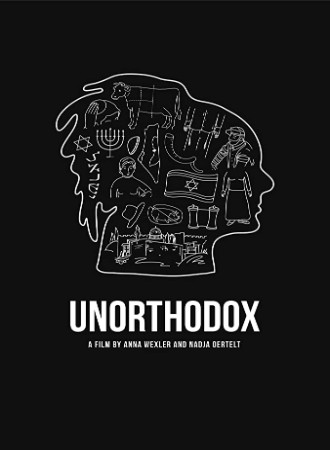
Unorthodox 2013
Distributed by Alexander Street Press, 350 7th Ave/Ste 1100, New York, NY 10001
Produced by Anna Wexler and Nadja Oertelt
Directed by Anna Wexler and Nadja Oertelt
DVD, color, 89 min.
Sr. High - General Adult
Adolescence, Judaism, Religion, Sociology
Date Entered: 03/05/2015
Reviewed by Mary Northrup, Metropolitan Community College-Maple Woods, Kansas City, MissouriThis very personal film combines director/producer Anna Wexler’s story of being raised in Orthodox Judaism and becoming an atheist with the journey of three teens who make a life-changing trip to Israel. In documentary style, Wexler uses home movies and stills to show her progression from little girl to young woman, film of her subjects, and interview-style subjects talking to the camera.
After graduating from high school, many American Jewish teens go to Israel for a year. A lot of these young people are religious to start, but even the nonreligious ones come back religious, which is referred to as “flipping out.” To investigate what happens in Israel, Wexler followed three teens for their year in Jerusalem, 2005-2006: Tzipi, Chaim, and Jake. Like many, the three take full advantage of freedom by partying wildly, then they gradually spend more time in school and maturing, until finally they make a major transformation.
The story of the three teens provides a fascinating look into a minority culture in the United States. Interspersed with the teens’ stories is Wexler’s continuing story, featuring her grandparents and friends and her filmmaking while she is at MIT. She provides a wide variety of scenes: the teens with friends, in dorm rooms, around town, and on trips, most notably to a concentration camp.
The sound quality is good, and when dialog is not audible, subtitles are provided. Visuals are high quality when Wexler does the camerawork. Because she is not allowed in the boys’ schools, she gave them cameras to do filming, and that film is, as expected, not professional, but it gets the job done. In capturing a wide variety of emotions, from wild abandon to grief to joy to serious contemplation, she gives the viewer an emotional as well as an informational film.
Unorthodox also includes a follow-up with the characters in 2010, showing big changes in their lives. The closing credits tell where the characters are now. This is at once a very personal film, since it tells Wexler’s story as well as those of the young people she followed, and a universal film as it explores youth, faith, and coming-of-age. The viewer comes to know and relate to the characters and their struggles and successes.
This film will be fascinating viewing for both Jews and non-Jews alike. College classes in women’s studies, religious studies, adolescent psychology, and sociology may find it useful for discussion. General audiences in public libraries who are interested in Judaism may also find it of interest.